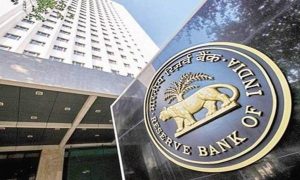Since the start of the COVID-19 pandemic, there’s been a push to develop a vaccine against the SARS-CoV-2 virus.
If scientists can do that quickly, and while we slow the spread of the disease, it’s believed that we can limit deaths by achieving herd immunity.
While scientists have been working hard on many fronts to understand the virus and develop controls for it, there’s still much we don’t know about immunity after recovery from COVID-19, including how long it lasts.
Knowing how long immunity lasts is important in creating vaccination protocols.
What we currently know about COVID-19 immunity
According to Lauren Rodda, PhD, a senior postdoctoral fellow in immunology at the University of Washington School of Medicine, we don’t know for certain if people are immune to reinfection simply because not enough studies have been done yet.
“This would require tracking the reexposure of a significant number of people and determining if they get sick,” she said.
However, she said that work has been done by her research team, as well as others, showing that antibodies against the virus are maintained for at least 3 months.
In her team’s preprint study in particular, which has yet to be peer reviewed, it was shown that this occurs even in people who have mild symptoms.
In addition, their study suggests that immunity could last much longer.
Rodda said they found that people who recovered from mild COVID-19 had memory B cells and memory T cells “with hallmarks of functionality.”
Memory cells give our immune system memory of previous microbial invaders, allowing it to have a quicker, stronger response the next time we encounter them.
What this means is that if people are reexposed to the virus, these cells, along with antibodies, will likely protect people from symptoms and further transmission.
Immune memory to other diseases, such as the measles, can last for many years, Rodda said, so this could be true of COVID-19 as well.
In a different study published in The New England Journal of Medicine, researchers in Iceland studied 1,107 people who had recovered from COVID-19 and tested positive for the antiviral antibodies.
Over a 4-month period of time, they found that those antiviral antibodies against COVID-19 had not declined.
However, Dr. Steven Sperber, interim chief of the division of infectious diseases at Hackensack University Medical Center pointed out that there’s still “much” that experts don’t know about SARS-CoV-2 because it’s such a new coronavirus.
He said that among those questions remaining to be answered are:
- Are you protected after infection? How long does the protection last?
- Are there factors related to the patient (such as age) that affect immunity?
- Are there factors related to the virus infection (such as severity of illness) that affect immunity?
- What’s the best way to measure immunity? Is it by measuring antibodies? Is there a specific type of antibody to measure?
- How long will protection last after vaccination?
Sperber further advised that until we do understand more, it’s best to continue to take precautions, such as physical distancing and mask-wearing, even after you recover.
Does a positive antibody test mean I am immune?
Sperber said that, at this time, we don’t really know if having a positive antibody test means that you’re immune to the virus.
The presence of antibodies only means that you’ve been exposed in the past.
Sperber explained that, for some infections, antibodies may provide protection against reinfection.
For others, they may not prevent reinfection, but symptoms may be milder.
In yet other cases, antibodies may provide no protection at all.
In addition, some test results may be “false positives”: A person may have been exposed to a similar virus that’s also detected by the test, but these antibodies aren’t protective from the new coronavirus.
Finally, he said, we don’t know at this point how long any protection achieved might last.
What is herd immunity, and why is it important?
According to Rodda, “Herd immunity is the concept that if enough people are protected from infection, either by gaining immunity from having the infection or receiving a vaccine, then the chance of a nonimmune person contracting the disease is exceedingly low.”
“This is important because there are people in our communities (babies, the elderly, people who have weakened immune systems) that cannot get immunized and they must rely on the rest of us taking precautions to protect them,” she said.
However, Rodda added, it would be a bad idea to simply allow the disease to spread unchecked in an effort to reach herd immunity more quickly.
“COVID-19 can be fatal in any age group,” she explained, “and the cost to human life is appallingly unacceptable.”
A vaccine is the ideal way to achieve herd immunity, according to Rodda.
Sperber agreed with Rodda that a vaccine is the best path forward, adding that widespread use of vaccines is key.
“Underutilization of effective vaccines can prevent the development of herd immunity and result in continued spread of infection,” he said.
The bottom line
Experts say the best way forward with COVID-19 is to develop an effective vaccine against the SARS-CoV-2 virus.
A vaccine will help us control the virus by creating herd immunity.
Understanding how our immune system responds to the virus is an important step in vaccine development.
While there’s much we don’t know yet, it appears we may develop immunity to the virus for at least 3 months. There are also signs that immunity could last much longer.
Several promising vaccines are in development, but until they’re available, we must use tools like physical distancing and mask-wearing to keep transmission down.



































